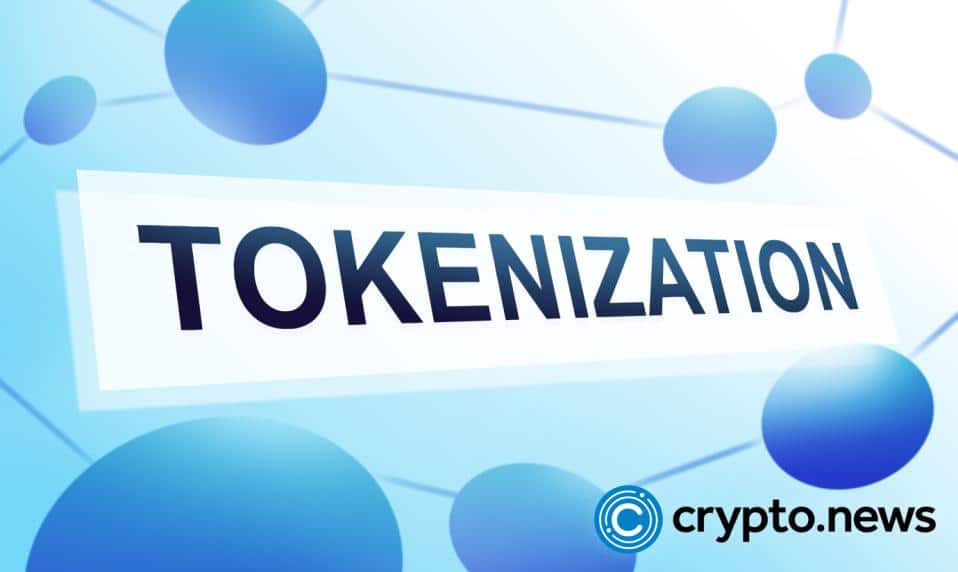What is tokenization and how tokenized stocks impact financial market
0
0

The concept of tokenization is becoming ever more prevalent in the world of blockchain technology, and the implications of its success are far-reaching.
Tokenization is converting assets into digital tokens, which can then be traded on the blockchain for various purposes. This can revolutionize how businesses and individuals manage their assets and finances. In this article, we’ll take a closer look at tokenization, why it matters, and how it can be used.
What is tokenization and why it matters
At its most basic level, tokenization is taking an asset and representing it digitally as a token. This tokenization process can represent physical assets like real estate, art, or jewelry. Moreover, it can act for financial assets such as stocks, bonds, and derivatives.
The tokenized asset can then be traded on the blockchain, allowing for a more secure and transparent transaction process.
For example, a $1 million piece of real estate can be tokenized and sold as 1,000 tokens representing $1,000 worth of the property. This can make it more affordable for investors to purchase a piece of the property and make it easier to sell or trade partial ownership.
One of the key benefits of tokenization is that it eliminates the need for a third party to verify the asset. Instead, a blockchain-based network of computers will validate the asset and its associated digital token, making it much easier to transfer ownership.
This process also allows for the secure storage and transfer of assets, as the blockchain platform is designed to prevent tampering or manipulation. Tokenization also has potential applications in the financial world.
Tokenizing financial assets, such as stocks, would allow for fractional ownership of assets. This could potentially open new markets and trading opportunities and bring greater transparency to transactions. It could also provide new options for fundraising, such as initial coin offerings (ICOs).
These tokens could be used to represent an ownership stake in a company and could be used to raise capital quickly, as well as provide liquidity for traditional investments.
One of the most exciting prospects of tokenization is its ability to bring access to financial services to people in developing nations or areas with limited access to banking.
By tokenizing the value of a national currency, it would be possible to make transfers much more quickly and cheaply than traditional banking, which can be time-consuming and expensive. This could open up some of the world’s unbanked populations to the economy, allowing them to participate in the global economy.
Tokenization is still in its early stages, and it’s unclear what broader implications it will have. However, it has the potential to profoundly change the way businesses and individuals handle their finances and assets and the way the global economy functions.
Advantages of tokenization
There are several advantages associated with tokenization:
1. Fraud reduction: Tokenization can help reduce fraud by making it more difficult for criminals to obtain and use sensitive data. For example, if credit card numbers are tokenized, criminals need to obtain both the token and the corresponding key to use the information.
2. Greater transparency: Tokenization can also provide greater transparency into the data that is being stored and used. For example, if data is tokenized and stored on a blockchain, each transaction would be recorded and visible to all parties on the blockchain.
3. Reduced costs: Tokenization can also help reduce data storage and management costs. For example, if data is tokenized and stored on a blockchain, there would be no need to store duplicate copies of the data on multiple servers.
Use cases of tokenization
Tokenization can be implemented in many industries, and companies and organizations can find ways to take advantage of its benefits. Some of the key industries that can be served with tokenization include:
- Finance: Banks, credit card companies, and other financial institutions can use tokenization to protect sensitive financial data and reduce the risk of fraud.
- E-commerce: Companies can use tokenization to secure customer data and facilitate transactions. By tokenizing sensitive information such as credit card numbers, e-commerce companies can reduce the risk of data breaches and protect customers’ personal information.
- Healthcare: Hospitals, clinics, and providers can use tokenization to protect patient data and ensure compliance with regulations such as HIPAA.
- Government: Governments can use tokenization to encrypt sensitive information such as social security numbers, tax returns, voting data, and other information valuable to fraudsters.
- Supply chain management: Tokenization can also be applied to the supply chain industry for tracking, traceability, and transparency of the products along the supply chain. Tokenization can identify unique items, track their location, and store data about them, such as their origin, history, and authenticity.
These are just a few examples of the many industries that can use tokenization. More industries are expected to adopt this technology with the increasing amount of sensitive data being generated and stored.
How tokenized assets impact the financial markets
With the growing amount of data generated and stored, tokenization is becoming important for securing sensitive information. It’s like a superhero for your data, protecting it from the bad guys and ensuring it stays safe and secure.
In the future, tokenization will continue to be a key player in the finance, e-commerce, and healthcare industries. It’s like the secret ingredient in a recipe, making transactions and communications more secure and efficient.
As technology advances, we can expect tokenization to be used in even more innovative ways. From blockchain to IoT, tokenization will be the glue that holds it all together, ensuring that sensitive data is protected while still accessible when needed.
0
0
 Manage all your crypto, NFT and DeFi from one place
Manage all your crypto, NFT and DeFi from one placeSecurely connect the portfolio you’re using to start.





